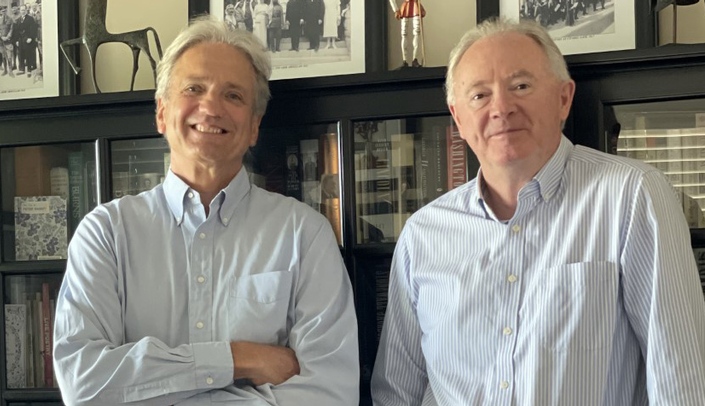When DMD Consulting first began evaluating the Nebraska IDeA Networks of Biomedical Research Excellence (NE-INBRE) program in 2003, they never imagined their involvement would be continuing almost 20 years later. "Dr. Turpen, the original PI for the program placed a high priority on evaluation, an attitude maintained by current PI Dr. Paul Sorgen," according to Dr. Dean Schieve.
Co-founder of DMD along with Dr. Donald Vangsnes, Schieve noted that it is unusual for them to work with one client for such a long time. However, the continuity provided by the arrangement has been of great value to the program and its funders, the National Institutes of Health (NIH). Over the years, the DMD evaluation has helped the program evolve and document its achievements through a variety of annual surveys, interviews and focus groups.
"We’ve had the privilege of spending the last 18 years observing the NE-INBRE program and evaluating the impact it has had on not only the students who participate in it but the faculty at the undergraduate institutions too," Dr. Vangsnes said. Having worked with INBRE programs from five different states, Drs. Schieve and Vangsnes think the Nebraska program is unique and one of the most effective in the country.
Given the longevity of the evaluation process and extensive findings, DMD is currently creating a longitudinal review of significant outcomes relating to original and ongoing program goals. This retrospective will be submitted for publication in a professional journal next spring.
The impetus for this review came from a recent survey of former INBRE students that revealed the program’s significant impact on their professional careers. Eighteen years ago Drs.Vangsnes and Schieve documented undergraduate student research that was of limited scope; fast-forward a few years and they began to notice a significant change in how INBRE Scholars perceived themselves.
"All of a sudden these students were talking and thinking like scientists," Dr. Vangsnes said.
The INBRE Scholars began exhibiting a level of maturity and confidence that also is reflected in their research and presentations which have become much more sophisticated, he said.
Through their evaluation activities, the consultants also identified a pattern of growth directly related to the resources invested in supporting undergraduate faculty research and the ripple effect it started to have on the INBRE Scholars.
"In 2006 we conducted a series of interviews with administrators at participating institutions, looking at how the NE-INBRE program has leveraged resources to boost science and research across the state and especially at the smaller campuses," Dr. Vangsnes said. What they found was critical INBRE contributions in the form of new equipment, supplies and research space. They also found a more unified network of faculty researchers who are being given the time and resources to focus on their scientific research.
And over the years, they found undergraduate students who are doing graduate level research.
"The expectation has changed among research mentors and program directors," Dr. Schieve said. "The students are a critical part of the undergraduate research programs at their schools and many are graduating having published at least one journal article," Dr. Schieve said. Increasingly since the outset of the INBRE program, many Scholars have presented their research at regional and national professional conferences.
The research infrastructure and network that the NE-INBRE program has built over the last 20 years doesn’t just impact the INBRE Scholars but other students who work in the labs of science faculty at the participating institutions.
"The teachers have really upped their game in the classroom, whether they are part of the program or not and that can only influence the level of science their students are exposed to," Dr. Schieve said.
When it comes to DMD’s evaluation contribution, Dr. Schieve said they have taken the things they’ve learned from their interviews with students, faculty and program directors to help improve the NE-INBRE program. Many recommendations have resulted from their evaluation work, including operational, program content and communication; for example, one suggestion was to expand visits by the INBRE Scholars to participating campuses to include private industry sites, where the students could also see how scientific research is applied in business settings.
The Minneapolis-based duo are anxious to revive their in-person visits to the INBRE campuses to conduct their evaluation activities. For now, they are excited to have a ringside seat to a program that grows richer in talent and science and is proven year after year to accomplish its biggest goal – to expand the pool of research scientists in the state.
